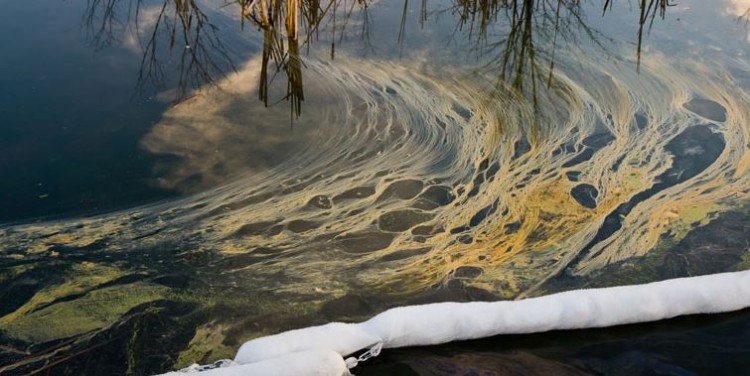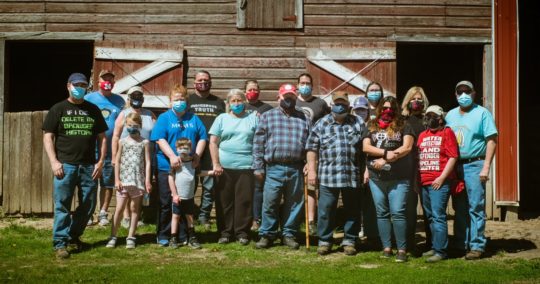

While we in Nebraska fight to keep the Keystone Export pipeline out of the Nebraska Sandhills and the Ogallala aquifer, we enjoy a relatively safe and abundant water supply nonetheless–that’s what we’re fighting for. Elsewhere in the U.S., however, oil spills like the Enbridge pipeline disaster in the Kalamazoo river watershed in Michigan that happened four years, a million gallons of oil, and a billion cleanup dollars ago, continue to seriously affect people in communities across our country. Sadly, not everyone has the luxury of clean water, and although the giant oil and chemical companies who would continue to perpetually pollute if citizens did not take action say that their operations are safe and beneficial to the economy, the truth is that the negative public health and economic fallout from oil and chemical spills seriously damages the communities in which they happen.
For example, In January 2014, a chemical spill in Charleston, West Virginia, contaminated the drinking water of about 300,000 people. A one-inch hole in a storage tank at Freedom Industries, a company that handles chemicals used in coal mining, leaked an initially-estimated 7,500 gallons of a substance called 4-methylcyclohexanemethanol (MCHM) into the Elk River about a mile upstream from the intake of West Virginia American Water, a company that provides drinking water for nine West Virginia counties. Citizens were advised not to drink, cook with, or bathe in the water until it was deemed safe. Less than a week later, even though the water hadn’t been thoroughly tested, the bans were lifted, amid suspicions that the water may still be polluted and possibly unsafe. Since then, the estimated amount spilled has increased to 10,000 gallons of MCHM.
Now, citizens and clean water advocates are taking action to ensure that such events to not happen in the future and to ensure that the water utility has adequate emergency plans and safety protocols in place to protect the drinking water supply.
One group, Advocates for a Safe Water System, formed to address these issues. They want to make sure the West Virginia Public Service Commission will be effective in protecting citizens from future contamination problems. They have started a crowd funding campaign to raise money for staff to help organize concerned citizens and keep the momentum going.
We here in Nebraska understand the importance of a state Public Service Commission in protecting our environmental resources and economic well-being. That is why we will continue to fight for our rights, even when Big Oil allies in the legislature attempt to take them away with bills such as 2012’s LB1161, which was declared unconstitutional by a Nebraska District Court judge. That is why we will support strong candidates running for Public Service Commission, the legislature, and our Public Power districts.
In the meantime, people in West Virginia need the support of others across the country to add our voices to their fight. They need resources to help accomplish their goals of having clean drinking water in their communities. Check out the Advocates for a Safe Water System’s crowd funding website here: https://www.indiegogo.com/projects/advocates-for-a-safe-water-system-in-west-virginia and please consider donating.
For further reading, here is a link to a Rolling Stone article about the West Virginia chemical spill: http://www.rollingstone.com/culture/news/dont-drink-the-water-west-virginia-after-the-chemical-spill-20140312
We need to keep fighting for basic drinking water protections and the right to know when and how our communities could be affected by chemical pollution–not just in Nebraska with the Keystone export pipeline, but also in places like West Virginia.



